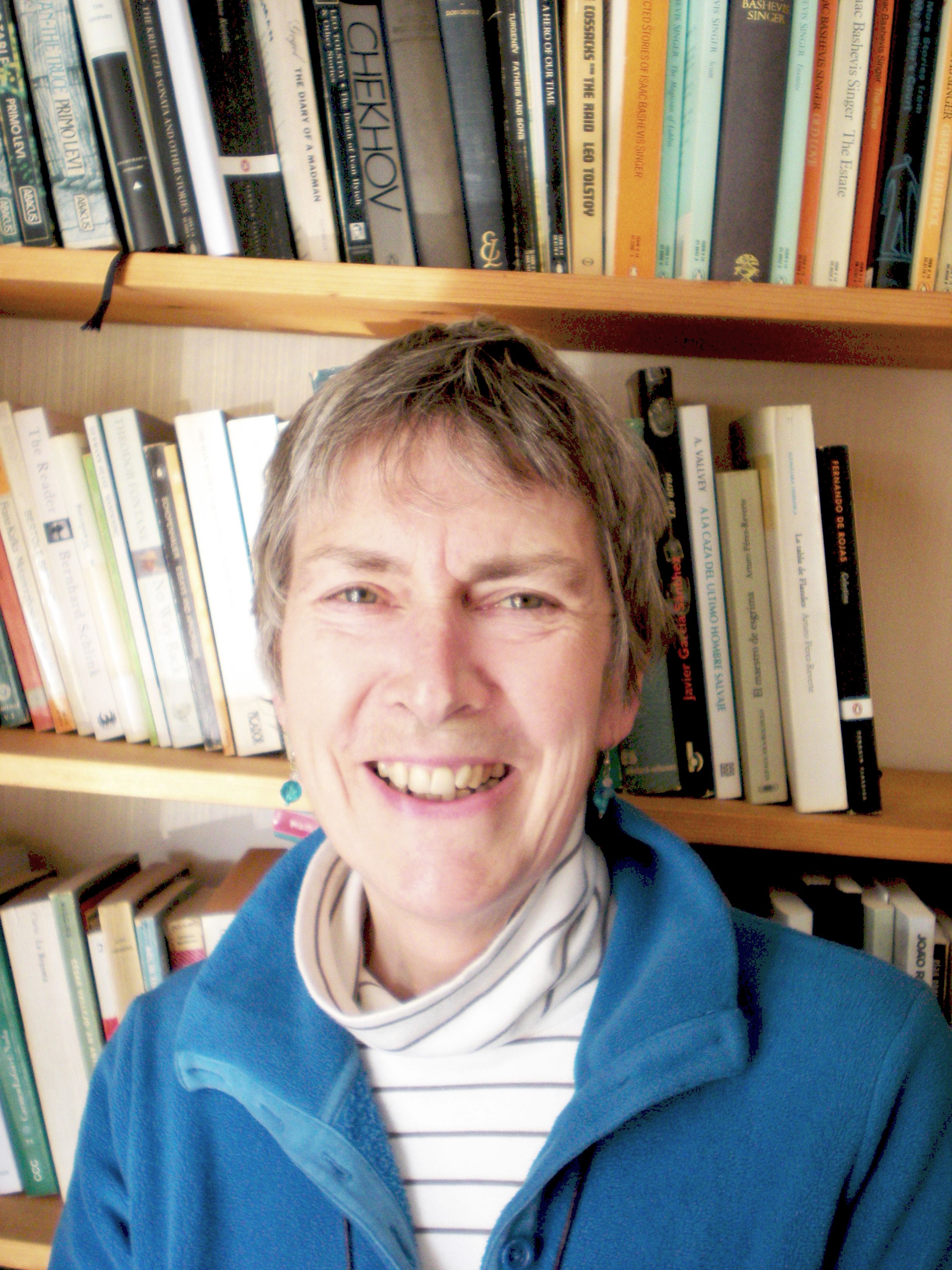©Pedro Calapez, Contacto /
Translated by Margaret Jull Costa
Edited by Paul Crick
“Teresa’s voice, becoming more and more fused with that of her grandfather, the voice that had spoken thirty years before and lived on in his letter, reminded them of all the homeless people who had either died or been forced to take refuge during the daytime in dens dug out of the earth (…)”
But she had no ground-breaking formulae that could bring about revolutions, she had only words. That is why she spoke. Softly and slowly at first, then more loudly as her shyness evaporated. She became aware of the tension in her voice.
“What’s the sense in squabbling over who’s in charge of the project? And what does it matter who invented the machine, when we don’t even know what will actually happen when we turn it on?”
A silence fell. Ricardo, his gloved hand ready to open the door at the far end of the corridor, his body sideways on, like a runner waiting for the starter’s gun and anticipating the imagined joy of crossing the finishing line, he, too, heard her and stayed rooted to the spot. Cacilda, hunched over the table, with the document naming her as project leader still in her grasp, released both grasp and gaze. Everyone fell silent. And Teresa continued to speak.
It wasn’t authority they heard in her voice, but a certain kind of power. Not a repressive power, but a good power, the kind that brings human beings together and makes them better people. Just as her grandfather had said in his letter. Teresa’s voice was her own voice, but part of it was inherited from her grandfather, from the story he’d told about opening the door to his neighbour to comfort her as she lay dying, and about the softly falling twilight, and about the trees, which her grandfather hadn’t mentioned in his letter, but which she knew, as they all did, would be on the point of bursting into leaf or into blossom. And about the birds and the sea and the animals. And about the people who could only leave their houses at night now, because the light of the sun, which had once been a blessing and a source of health and reassurance, revived the threat and produced that mysterious, terrifying chemical reaction that turned threat into reality. Not at night, though, but even then you had to be careful because, after a hot day, any surface could still be very slightly contaminated.
Teresa’s voice, becoming more and more fused with that of her grandfather, the voice that had spoken thirty years before and lived on in his letter, reminded them of all the homeless people who had either died or been forced to take refuge during the daytime in dens dug out of the earth, and from which they could emerge only when the sun had set and darkness had fallen.
The more ingenuous reader will be thinking now that Teresa’s words would have had the desired effect, that all the scientists gathered round the table would be touched by her words and by her voice. That Cacilda would have been moved too and recalled those bright, sunny days when she used to set off on her motorbike along country roads flanked by colourful fields, with Ricardo riding pillion, his arms around her. The same Ricardo whom Cacilda, in their romantic reverie, would affectionately, playfully, call Rick. The innocent reader (whether male or female) will imagine that Teresa’s voice and words would have inspired Ricardo to return to the university and its laboratories, to relive the days when the sun could still be seen and felt, when Cacilda and he had worked happily side by side, their hands occasionally touching.
The credulous reader might well have thought this. Alas, dear reader, you would be mistaken.
Read the original chapter in Portuguese

Ana Luísa Amaral has written over twenty works of poetry, fiction and theatre, as well as books for children. Translated into several languages, her work has brought her many prizes, including the 2008 Grande Prémio from the Portuguese Writers’ Association and the PEN Prize for Fiction. She is also a translator, notably of the poetry of John Updike, Emily Dickinson and William Shakespeare. A collection of her poetry, What’s in a Name, was published by New Directions in 2019.
©Casa Fernando Pessoa

Margaret Jull Costa has been a literary translator for almost forty years and has translated works by novelists such as Eça de Queiroz, José Saramago and Javier Marías, as well as the poetry of Sophia de Mello Breyner Andresen, Ana Luísa Amaral and Fernando Pessoa. She has won various prizes, most recently the 2017 Premio Valle-Inclán for her translation of Rafael Chirbes’ novel On the Edge.
Listen to this chapter on Facebook read by Ben Slack
(video production by Gabriela Ruivo)
Escape Goat is the twin page of Bode Inspiratório
All content subject to copyright. All rights reserved
